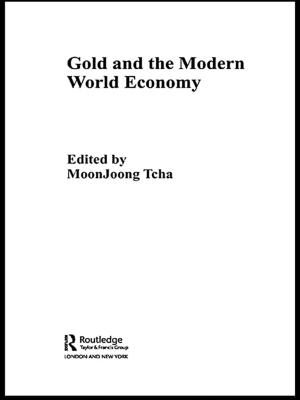Freedom and Constraint
The Paradoxes of Leisure
Nonfiction, Social & Cultural Studies, Social Science, Sociology| Author: | ISBN: | 9780429623318 | |
| Publisher: | Taylor and Francis | Publication: | April 24, 2019 |
| Imprint: | Routledge | Language: | English |
| Author: | |
| ISBN: | 9780429623318 |
| Publisher: | Taylor and Francis |
| Publication: | April 24, 2019 |
| Imprint: | Routledge |
| Language: | English |
First published in 1989. In the climate of long-term unemployment, early retirement, and technology that is seen to threaten jobs, 'leisure’ has been presented as the solution to a multitude of social problems. The essays in this collection represent the most important arguments on the problems, myths, and misunderstandings of leisure. Arguing from a range of positions, some sceptical, others more idealistic, they look at the complexities of this field and the social and political problems that surround it.
No single argument dominates. What emerges is a live-wire debate on class and gender, employment and economic status, age and education, which brings the discussion of leisure controversially up to date.
The book, based on papers presented to conferences of the Leisure Studies Association, divides into sections on leisure and social change, the relationship between leisure and social structures, and the tension between leisure and employment. It takes a critical look at leisure in Britain, Sweden, the Netherlands, and the USA, and at the paradoxes that will determine its future. Whilst refusing to see leisure as a synonym for social progress and liberalization, it argues that the quality of leisure reflects the quality of society itself.
First published in 1989. In the climate of long-term unemployment, early retirement, and technology that is seen to threaten jobs, 'leisure’ has been presented as the solution to a multitude of social problems. The essays in this collection represent the most important arguments on the problems, myths, and misunderstandings of leisure. Arguing from a range of positions, some sceptical, others more idealistic, they look at the complexities of this field and the social and political problems that surround it.
No single argument dominates. What emerges is a live-wire debate on class and gender, employment and economic status, age and education, which brings the discussion of leisure controversially up to date.
The book, based on papers presented to conferences of the Leisure Studies Association, divides into sections on leisure and social change, the relationship between leisure and social structures, and the tension between leisure and employment. It takes a critical look at leisure in Britain, Sweden, the Netherlands, and the USA, and at the paradoxes that will determine its future. Whilst refusing to see leisure as a synonym for social progress and liberalization, it argues that the quality of leisure reflects the quality of society itself.















